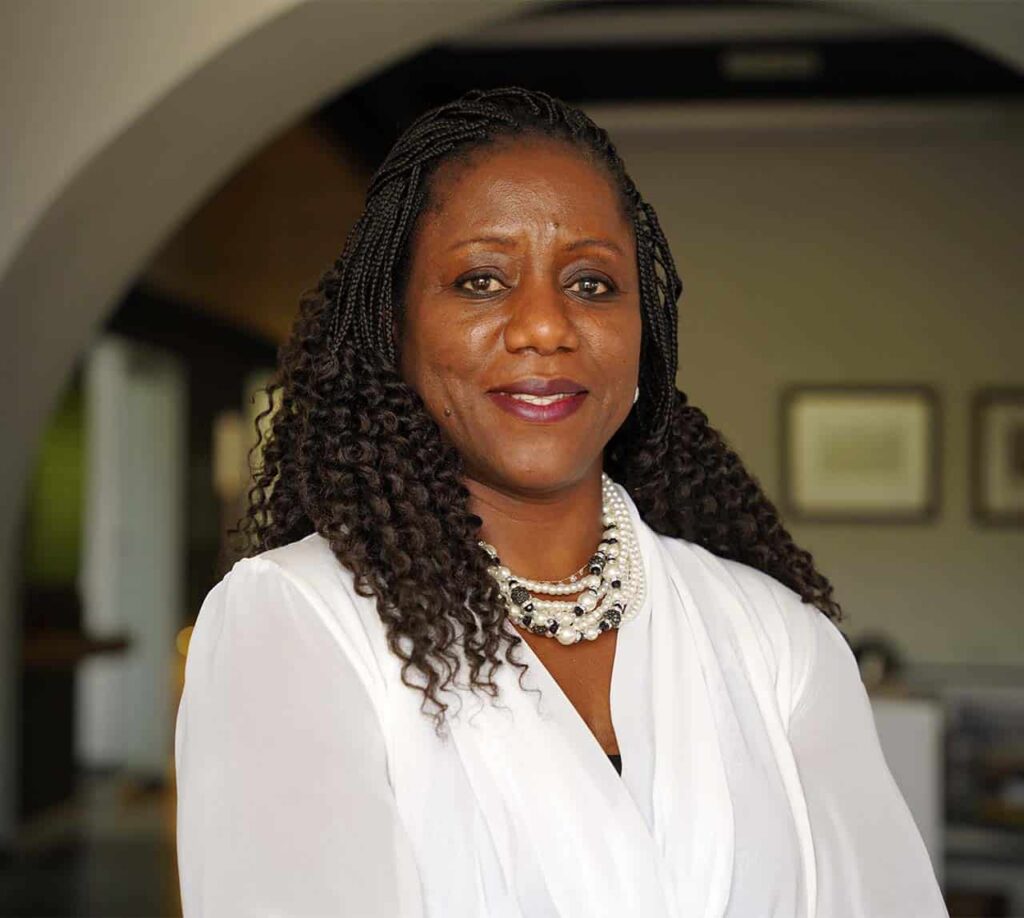Dr Solange Bandiaky-Badji Rights and Resources Initiative (RRI) President and Coordinator
While the world feels to be perched on the edge of decline, I can’t help but look to the country of my birth and see something rare and precious – opportunity.
Senegal hasn’t, until this year with the democratic election of Africa’s youngest leader, tended to make global headlines. Yet I am more and more resolute in my belief that it has the potential to become the face of the continent’s future.
Why? A powerful and rare convergence of relative peace, one of the youngest populations in the world, the economic prosperity that can come from new oil and gas and a dynamic new government elected not once, but twice with a large parliamentary majority.
Yet, all of these factors face difficult realities, and the world is watching Senegal to see if it can navigate into its new era with grace and equity. New oil and gas extraction has plunged other once proud African nations into conflict as natural environments across the region are damaged beyond repair, devastating climate impacts are fuelled, and land rights are cruelly disregarded, with attempts to reform failing over past decades. New jobs are going not to our own eager workforce but overseas.
We know that if managed incorrectly, new extraction plants could have devastating effects. Nowhere was the battle cry sharper on this than at COP29 in November. That new oil and gas plants, while still a reality of the world we live in, are being opened at all must weigh heavily on our collective conscience. But if they are to be done, they must be built and operated with an abundance of consideration for the lands they sit on and the people who live on these lands.
Rich in natural resources, Africa is where global geopolitics are playing out. The continent is at the forefront of our changing world. This means that if Senegal seizes its unique chances it can be a guiding light to others. Newly-elected President Bassirou Diomaye Faye has the challenge of remaining robust and clear-eyed as this journey gets underway. And given that his party, PASTEF, are grounded in the ideals of a youth movement driven by the ideology of good governance and the fight against systemic corruption, I hope that his plans include proceeding with oil and gas with great care and caution.
I trust that President Faye is determined in the mantle he has assumed and serious about Senegal’s leadership potential. His government’s 2050 vision maps brave steps to allow him to take action. Equally, he was voted in based on much-needed campaign promises to create more jobs, boost prosperity, and reform the corrupt system Senegal has been in for decades. The expectations have been raised far too high to fail.
As a proud Senegalese leading a global coalition of organizations working for the land and resource rights of Indigenous Peoples and local communities, particularly the women and youth within them – my country’s shift to becoming a new oil and gas producer is bittersweet.
I know the grave concerns of fishermen about the risk drilling has to pollute the waters providing them a life source. And I know that there are local communities who must not be displaced, nor forced to live as the forests around them are stripped back, in the name of economic gain.
Senegal is no stranger to increasing climate impacts, having suffered massive coastal erosion and flooding that has displaced tens of thousands of people and put the country’s food supply in jeopardy by destroying crops. This is without the added pressure of oil and gas extraction. In other African countries, we have seen poorly managed extraction cause rampant pollution, unmanaged deforestation, and eruption of conflict and corruption compound the already destabilizing effects of rising temperatures.
It would pain me to see Senegal succumb to similar fates, which is why I will continue to highlight the importance of undertaking major reforms – starting with the land reform that has been stalled under previous Presidents and to promote fair and equitable natural resource extraction that benefits the country and its rural communities.
So, his audit into the oil and gas and mining sectors is a positive first step. Our natural resources have the potential to boost Senegal’s economic prosperity. Despite the comparative peace and stability in Senegal, many young people are getting in boats and leaving, risking their lives at sea. Providing more employment, and better quality of employment through extraction could help us retain our future generations.
Moreover, while the responsible creation and operation of new plants is vital, there’s an issue that has not been addressed since independence from France that can have a role in guaranteeing standards are upheld – land reform.
Senegal’s main land law – loi sur le domaine national – has not been updated since 1964, with efforts over the past decades falling short. We must guarantee that extraction is going to be done in a way that does not harm the environment, is not corrupt, and does not take the rights of communities who live on the land into account in the absence of clear and current land law.
If President Faye can unpick this historically complex issue and find an equitable way forward for land reforms that protect local communities from displacement in favor of drilling, Senegal stands a chance of showing our African neighbours and the rest of the world how it’s done. The world is watching, President Faye, for you to steer into a new era of peace and prosperity.
